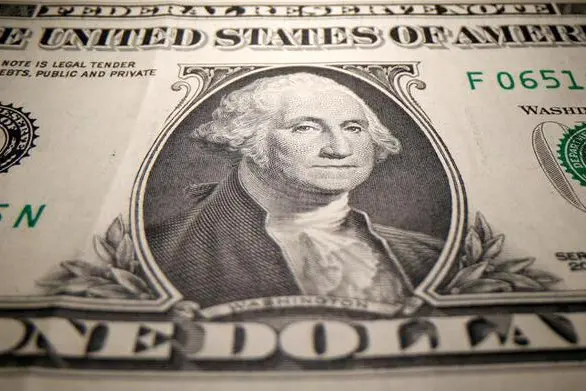PHOTO
SINGAPORE: The U.S. dollar began the week under gentle pressure, after a second consecutive month of softer-than-expected U.S. jobs data reversed its recent attempts at a rally, as focus shifted to inflation figures and a European Central Bank meeting.
Friday jobs readout, which showed U.S. non-farm payrolls increasing by 559,000 in May, missed market expectations by nearly 90,000 and seemed to cool worries that the recovery was running hot enough to require early tapering of policy support.
After the data, the dollar unwound a broad bounce, and on Monday it opened in Asia near where it finished the week. A euro bought $1.2165, about 0.5% below the three-week high of $1.2104 it had struck on Friday.
The Australian and New Zealand dollars were back above 77 cents and 72 cents, respectively, and the dollar was back beneath 110 Japanese yen, last trading at 109.61 yen.
China's yuan bounced back to again trade stronger than 6.4 per dollar and last bought 6.3880 offshore.
"Friday's slightly softer-than-expected U.S. May employment numbers stand to set the tone for the weeks ahead," ING Bank analysts said in a note to clients.
"This provides the excuse for the (U.S. Federal Reserve) to say that substantial progress towards its goals has not been achieved and to defer the tapering debate a little longer."
Short bets against the dollar increased a tiny bit last week as Fed officials insist the recovery has a long way to run and they will not rush to react to short-term data points. Still, U.S. inflation figures due on Thursday will be a major focus for traders looking to glean an insight into just how short-term growing price pressures may be. Another miss of lofty forecasts might clear the way for further dollar declines.
"Assuming dollar bears can pass through Super Thursday of U.S. CPI and the ECB policy decision unscathed, the dollar could stay gently offered into the major event risk of the month which is the FOMC decision," ING analysts added in their note.
The U.S. dollar index, which measures the greenback against a basket of six major currencies, was steady at 90.107 in Asia, in the top half of a narrow range it has kept for several weeks.
Also this week is Chinese trade balance data, which could give a reading on the fundamental forces behind the yuan's rapid rise, while the market's focus for the ECB is on whether the bank adjusts the pace of its bond buying programme.
"The ECB is in a bit of a Catch-22," said Rabobank's macro strategists in a client note. "The outlook is gradually improving and the financial conditions are also still broadly conducive to the recovery," they said.
However, this is partly due to resolute dovishness from several members, setting the stage for debate inside this week's meeting which may deliver a small slowdown in the pace of bond buying, Rabobank added.
(Reporting by Tom Westbrook; Editing by Lincoln Feast.) ((tom.westbrook@tr.com; +65 6973 8284;))





















